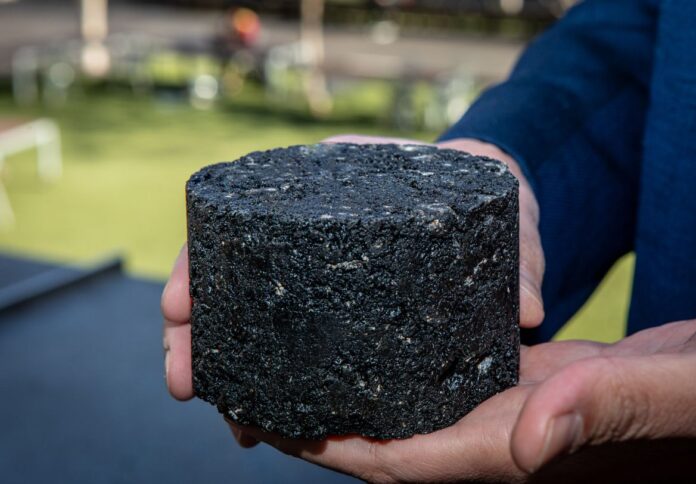
A team of researchers led by RMIT University is paving the road across 10 Victorian sites with asphalt incorporated with recycled plastic from consumer and industrial waste.
The project, backed by the Australian Research Council, Austroads, and 10 Victorian councils, seeks to demonstrate a viable circular economy solution and address the urgent challenge that comes as Australian landfill reaches capacity, which is expected in 2025.
The team, led by RMIT Associate Professor Filippo Giustozzi, is set to create best-practice guidelines on the use of recycled plastics in asphalt roads to enable local governments to begin the widescale adoption of the recycling project.
The 10 project sites in Victoria will use approximately 21,000 kg of recycled plastic, but the potential scale for the solution is considerable given the several hundred thousand kilometres of roads that stretch across Australia, according to Giustozzi.
“If Australia’s 537 local governments each used a small amount of recycled plastic in the many roads they resurface each year, then nationally we’ll have created a large end-market for recycled plastic,” the RMIT professor added.
The city of Melbourne and nine suburban and regional councils will lead the way as the first governments to host the project, each having sections of the recycled road up to 900 m long paved over the coming months.
Local government areas involved in the project include Banyule, Bayside, Moonee Valley, Hobsons Bay, Baw Baw, Latrobe, Casey, Mornington Peninsula and Wyndham.
RMIT conducted extensive laboratory studies for Austroads, the coalition of transport agencies in Australia and New Zealand, to demonstrate that the mixes are mechanically, chemically, and environmentally sound.
“The performance of roads can actually be improved with the additions of recycled material, such as plastic and rubber, to be more durable against traffic and resistant against ageing,” Giustozzi said.
In a recent study supported by Austroads and published in Science of the Total Environment, RMIT researchers found that the recycled plastic asphalt mixtures had 150 per cent less cracking and 85 per cent less deformation under pressure than conventional asphalt.
“These studies tell us that adding specific types of plastic in the right way can generate greater rutting and fatigue resistance,” Giustozzi said. “In some instances, the performance of the mix was similar to some of the more expensive polymers used in roads and substantially higher than conventional asphalt mixes.”
The RMIT-led project will be coordinated under the ARC Industrial Transformation Research Hub for Transformation of Reclaimed Waste Resources to Engineered Materials and Solutions for a Circular Economy.


















